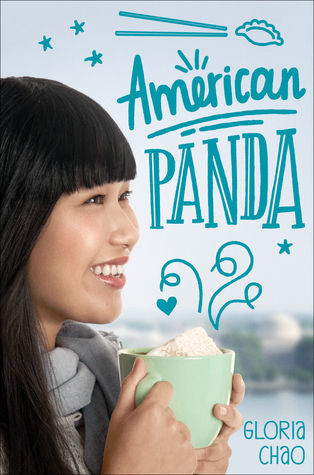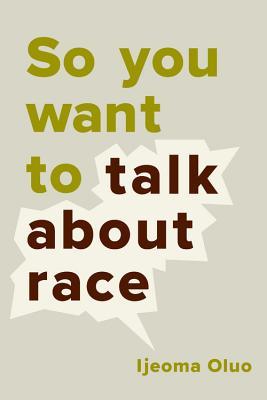*** Warning!! This review contains spoilers!! ***
 I have lots of mixed feelings about this book. I really, really, really wanted to love it. I'm a big fan of promoting diverse books, and I think narrative plenitude is super important. In that vein, I absolutely acknowledge that each individual book involving another culture can not be expected to represent the entire culture in a way that suits me, and the only way to escape that expectation is for more books, and a much wider variety of books, to be written. Maybe if we already had narrative plenitude for Asian-Americans, I wouldn't feel guilty about my rating, which I gave a little bump for its diversity factor.
I have lots of mixed feelings about this book. I really, really, really wanted to love it. I'm a big fan of promoting diverse books, and I think narrative plenitude is super important. In that vein, I absolutely acknowledge that each individual book involving another culture can not be expected to represent the entire culture in a way that suits me, and the only way to escape that expectation is for more books, and a much wider variety of books, to be written. Maybe if we already had narrative plenitude for Asian-Americans, I wouldn't feel guilty about my rating, which I gave a little bump for its diversity factor.
From the outset, if ever there was a book that I should feel was written for me - the kind of book I would have wanted growing up - this book would be it. Like the main character Mei, I, too, am a child of immigrants whose families left China for Taiwan during the Communist Revolution. I, too, grew up in Massachusetts, went to Chinese School, danced in a traditional Chinese folk dance troupe, went to MIT, and lived in Burton Conner. In college, my mother occasionally brought me Chinese food, and I even dated a Japanese boy. So yes, I identified with Mei, and I appreciate that such a book exists that can speak to readers who are younger versions of myself.
I thought the author did a really wonderful job portraying how Mei's strict and overbearing parents were motivated by love and tradition, and how Mei's filial piety came from a place of appreciation and respect. On the whole, the book was a fantastic story about how an Asian-American teenager comes to terms with her identity while straddling two cultures. Yet, it bothered me that both Mei and her parents fit all the stereotypes, from the "tiger mom" parenting style to the model minority myth. Mei's mom was even a terrible driver, which added nothing to plot or character development. I found these characters to be believable, but I was weighed down by the propagated stereotypes.
Other characters, like Dr. Chang, were far less believable. She was a mousy, poor excuse for a doctor whose role as a plot device couldn't have been more contrived. Also, giving the mean girl Valerie an unflattering health condition seemed unnecessary.
Throughout the book, there were three things I found repeatedly distracting. The first was the frequent use of Chinese without a glossary for reference. I liked that the author used pinyin with accent marks - too frequently the crucial accents are left out of pinyin - but the Chinese was only sometimes translated. I know enough Chinese so I was able to understand all the references, but I know that when I read books with languages unknown to me, I always like to know what the non-English words mean, instead of having to guess and wonder if I guessed correctly. Sometimes, there was enough context to figure out the gist of the Chinese words' meaning, but not always.
Another distraction was the habitual references to MIT culture. The explanations about MIT lingo - most presented in a blatant "tell" rather than "show" manner - seemed more like name-dropping, giving me a sense of like, "Look, I really did go to MIT, I really am an insider, let me prove it to you." It's like the book was trying too hard to push the MIT connection.
Thirdly - and this might say more about me than the book - I was really taken aback by the occasional raunchiness. The cover art, the interior design, the personality of the main character - they all led me to believe that this would be a pretty straight arrow kind of book. But every now and then, I was thrown off by a sexually explicit joke, a sexually implicit use of a word like "horny" or "beaver", and casual use of the f-word. They all just seemed out of place for a "nice girl" character like Mei. The added vulgarity didn't add any authenticity or relevance, it was almost as if those references were thrown in to say, "Look, just so you know, Mei isn't a goody-two-shoes, and MIT students aren't all prudes." This book definitely falls in the "Young Adult" category, and I wouldn't recommend it for middle schoolers (which I might have done if I judged the book by its cover).
Finally, I was incredibly disappointed in the direction one of the conflicts took. Mei's brother Xing was disowned by their parents because he wanted to marry a woman who had a health condition that presumably prevented her from having children, thus depriving them of ever having grandchildren to carry on the family name. This was obviously a huge conflict, and any resolution would involve a major change in heart from one side or the other. Instead, the conflict was diluted when the woman got pregnant. It just seemed like a cop-out.
Overall, a good book about Asian-American identity, but not as well-executed as I would have liked.


